Search This Blog
Monday, April 30, 2012
Captains And The Kings (1976)
Sunday, April 29, 2012
Mad Dog And Glory (1993)
The Deadly Trap (aka La Maison Sous Les Arbres) (1971)
Saturday, April 28, 2012
J. Edgar (2011)
The controversial J. Edgar Hoover headed the Federal Bureau of Investigation for almost fifty years. Director Clint Eastwood's attempts to cram those fifty years encompassing everything from the kidnapping of the Lindbergh baby, the prohibition gangster wars, Bolshevik anarchy in the 1920s, the Kennedy era, the civil rights era to the election of Richard Nixon etc. in two hours. It can't be done and the end result plays out like a "J. Edgar's greatest hits" compilation. To Eastwood's credit, he does attempt to provide some insight into Hoover's complex and complicated psyche and Oscar winning screenwriter Dustin Lance Black's script is serviceable. But it's just not enough to provide a satisfying picture. Oh it's eminently watchable to be sure but it can't disguise its liabilities. And did Eastwood forget to pay his light bill? This is literally one of the darkest films I've ever seen and I kept wanting to cry out, "Turn on the lights, Clint!". I had eyestrain trying to watch what was going on. Perhaps the dim lighting was necessary to disguise Leonardo DiCaprio's old age make up which looks artificial. As for his performance, DiCaprio is quite good despite being, dare I say it, miscast. The intense emotional relationship (there's no indication in the film that it was ever sexual beyond a kiss) between Hoover and his right hand man Clyde Tolson (wonderfully played by Armie Hammer) is handled beautifully and forms the film's core. With Naomi Watts as Hoover's career long secretary Helen Gandy, Judi Dench as Hoover's mother, Dermot Mulroney, Jeffrey Donovan, Josh Lucas, Ken Howard, David Clennon and Lea Thompson.
Come Blow Your Horn (1963)
When his 21 year old younger brother (Tony Bill) moves into his Manhattan bachelor pad, a swinging ladies man (Frank Sinatra) finds the younger brother turning into a facsimile of himself and he doesn't like what he sees. Based on Neil Simon's first Broadway hit, the film is a relic of the swinging 60s. From its hideous Oscar nominated sets to its lecherous repartee, the movie screams, "Early 60s!". The film has much in common with Sinatra's similar but far superior 1955 romantic comedy, THE TENDER TRAP but without that movie's visual wit and charm. Unlike the later films based on his plays, Simon had nothing to do with this film version which might account for some of the flat dialog. The performers are fine though Tony Bill's mugging gets tiresome very quickly though he makes for an uncanny physical match as Sinatra's kid brother. Directed by Bud Yorkin (DIVORCE AMERICAN STYLE). The melodic cocktail lounge score is by Nelson Riddle and there's a wonderful title song sung by Sinatra midway into the picture by Sammy Cahn and James Van Heusen. With Lee J. Cobb as Sinatra's father (though he's only four years older) who despite his constant bellowing still manages to give the best performance in the picture, Barbara Rush, Jill St. John, Molly Picon (FIDDLER ON THE ROOF), Dan Blocker, Phyllis McGuire and a cameo by Dean Martin as a homeless bum.
Friday, April 27, 2012
Ludwig (1972)
In 1864 Bavaria, King Ludwig II (Helmut Berger, GARDEN OF THE FINZI CONTINIS) begins his unsteady reign. Obsessed with the music of Richard Wagner (Trevor Howard), Ludwig invites him to Munich where he spends copious amounts of the treasury funds to mount Wagner's TRISTAN UND ISOLDE. Meanwhile, he pines with unrequited love for his haughty cousin Empress Elisabeth Of Austria (Romy Schneider) and struggles with his homosexuality. But slowly and methodically, he loses his grip with sanity. A sumptuous bore. Visually, the film is a stunner and the great director Luchino Visconti painstakingly recreates the splendor of the 19th Century Bavarian court with its gold gilded furniture, beautiful tapestries, underwater grottoes and lavish balls. Originally cut down to three hours upon its American release, the film has been restored to its full four hour length and I'm not so sure that's a good thing. I've never seen such a film with characters walking up long staircases (and the camera recording every step), carriages arriving and leaving, wandering through long corridors and hallways etc. at a snail's pace. Typical of wasted time: Visconti has a slow long shot of a servant walking across the snow to meet her mistress, only to have Romy Schneider dismiss her when she arrives as the scene continues between Schneider and Berger. One is better off reading a good biography of Ludwig instead. But as cinema, it's ravishing to watch if you want to commit to the four hours. With Silvana Mangano, Adriana Asti, John Moulder Brown, Mark Burns and Helmut Griem (CABARET).
Thursday, April 26, 2012
Juarez (1939)
Unaware he is being used as a dupe and a puppet leader, Maximilian von Habsburg (Brian Aherne in an Oscar nominated performance) is placed on the throne of Mexico by the French government headed by Napoleon III of France (Claude Rains). But when he finds out the true purpose of his being placed on the throne, he attempts to rule independently of France but must still face the revolutionary forces of Benito Juarez (Paul Muni). This ambitious epic is partially based on the play JUAREZ AND MAXIMILIAN by Franz Werfel (SONG OF BERNADETTE) and that's what this film should have been called. Despite being billed below the title, Aherne's performance is key to the film and Maximilian's character is every bit as important to the story as Juarez's. The film (John Huston was one of the three screenwriters) has an authenticity rare in historical epics of the period. The film is fair to all involved and Juarez isn't necessarily portrayed as a saint. Muni is so remarkably restrained that I had to keep pinching myself that I was watching Paul Muni. Though top billed, Bette Davis as Carlotta, the Empress of Mexico, is a supporting role. But it's one of her best, most subtle performances. The disappointing score is by Erich Wolfgang Korngold. Directed by William Dieterle. With John Garfield (stunningly awful), Gale Sondergaard, Gilbert Roland, Donald Crisp, Joseph Calleia, Louis Calhern and Harry Davenport.
Wednesday, April 25, 2012
Nothing But The Truth (2008)
Bedevilled (1955)
An ex-G.I. (Steve Forrest) arrives in Paris to study at a seminary for the priesthood. But when an American chanteuse (a blonde Anne Baxter at her most glamorous) on the run from some thugs because she witnessed a killing enters his life, he falls prey to the flesh. "Priests in love" movies aren't particularly original (MONSIGNOR, THE CARDINAL and THE RUNNER STUMBLES come quickly to mind) but they usually use the subject matter for titillation rather than explore the subject with any kind of profundity. BEDEVILLED is no exception. The film combines the "forbidden love" aspect with that of a seductive thriller. The authentic Paris locations are used as a travelogue rather than an essential part of the narrative, the story could have been set in any major city. The dour Forrest makes for a rather jejune leading man which leaves all the emoting to Baxter. And after all that running across the rooftops of Paris, the sanctimonious ending is a disappointment. Directed by Mitchell Leisen (HOLD BACK THE DAWN). With Simone Renant, Robert Christopher and Victor Francen.
Tuesday, April 24, 2012
The Late Show (1977)
When his ex-partner (Howard Duff) shows up at his rooming house shot to death, an aging and impoverished private eye (Art Carney) is determined to find the man that killed him. When a kooky ex-actress (Lily Tomlin) attempts to hire him to find her kidnapped cat, he's not interested ..... until he finds out that there's a connection between the kidnapped cat and the murder of his ex-partner. Robert Benton's (PLACES IN THE HEART) film is a loving valentine to the film noir genre but instead of setting it in the Los Angeles of the 1940s or 1950s, he sets it in contemporary (circa 1977) L.A. Carney's Ira Wells isn't a tough talking Sam Spade or Philip Marlowe type either. He's got bleeding ulcers, walks with a limp, wears a hearing aid and glasses and is frequently out of breath. Tomlin isn't the prototypical noir femme fatale (that role falls to Joanna Cassidy BLADE RUNNER), she's a quirky flower child who sits in the lotus position and chants! But Benton's Oscar nominated screenplay is perfectly attuned to the rhythm of both the noir genre and the zeitgeist of the 70s. Carney has never given a better screen performance (not even in his Oscar winning role, HARRY AND TONTO) and he has an unexpectedly marvelous chemistry with Tomlin. The faux Jerry Goldsmith score is by Ken Wannberg. With Bill Macy, John Considine, Eugene Roche and Ruth Nelson.
A Walk In The Sun (1945)
In 1943 WWII, a platoon of American soldiers land on the Italian coast of Salerno with orders to make their way seven miles inland to a farmhouse occupied by Nazis and take it down. This rather "artsy" war film is greatly admired in some quarters. It was directed by Lewis Milestone, most famous for another war film, ALL QUIET ON THE WESTERN FRONT which won him an Oscar. Like that film, this film aspires to be more than just another WWII actioner but it's just as pretentious as its better known predecessor. The film is mostly talk, talk, talk ... and then more talk. A few soldiers are killed and one has a nervous breakdown but the John Ireland character is typical of the film's agenda. Ireland's character writes poetic letters in his head to his sister and there's an awful "ballad" played on the soundtrack that lays on the philosophical sentiment with a trowel. I can appreciate the attempt but I ain't buying. The film's crisp black and white cinematography is nicely done and director of photography Russell Harlan (RED RIVER) and Milestone provide some handsome compositions that disguise the fact that we're on the 20th Century Fox ranch and not Italy. The rancid score is by Freddie Rich. With Dana Andrews, Richard Conte, Lloyd Bridges, Steve Brodie, Norman Lloyd, Sterling Holloway, Huntz Hall and Herbert Rudley who botches it in a role a better actor could have gotten an Oscar nomination out of.
Monday, April 23, 2012
Untamed (1955)
Sunday, April 22, 2012
Swamp Thing (1982)
In the Louisiana bayous, a scientist (Ray Wise, TWIN PEAKS) and his sister (Nanette Brown) are working on the creation of a hybrid plant that incorporates an animal nucleus that will allow plant life to thrive under the harshest of conditions. Meanwhile, an evil scientist (Louis Jourdan) has plans of his own for the formula and in an attempt to steal the formula, a horrible accident occurs that turns Wise into ... Swamp Thing! Based on the DC Comics character of the same name, director Wes Craven (SCREAM) has given us an uneven horror/sci-fi film, part parody and part serious and the two parts never quite come together. The film appears to be an homage of sorts to CREATURE FROM THE BLACK LAGOON but instead of Julie Adams in a form fitting white one piece bathing suit, we get a topless Adrienne Barbeau. There's no fright, no real horror in the film though to be fair, I don't think it was ever intended to be. The Swamp Thing monster is obviously a stunt man in a tacky rubber monster suit. But while there was an innocence to the rubber suited monster in BLACK LAGOON that allowed us to buy into the story, the intentionally chintzy rubber monster only serves to remind us how much better that film was.
Mambo (1954)
Returning to her hometown of Venice, a famous dancer (Silvana Mangano) reflects on the two men who lead to her leaving Venice and now make her uncomfortable in returning. One (Vittorio Gassman) was a good for nothing opportunist and the other (Michael Rennie), a debauched aristocrat. As she suspected, both men re-enter her life but for different reasons. An Italian-American co-production, the film was produced by Dino De Laurentis (Mangano's husband) and Carlo Ponti from an original script by three Italian screenwriters and the film's American director, Robert Rossen (THE HUSTLER). It's a rather kitschy soap opera with Mangano suffering in poverty, suffering in wealth and well, just suffering. The best sections of the film involve the dance sequences which were choreographed by the great Katherine Dunham, who plays herself in the film. Unfortunately, as lovely as she is, Mangano lacks a dancer's grace and her dancing is awkward when in the presence of real dancers. As the manager of the almost all black dance troupe, Shelley Winters has some nice scenes before being dispatched way too soon, taking some of the film's life with her. I suppose the decision to shoot the film in black and white, Harold Rosson (SINGIN' IN THE RAIN) did the cinematography, might have been an attempt to give the film a grittier look but the Rome and Venice locations scream out for color. The score is by Nino Rota and Angelo Francesco Lavagnino. With Eduardo Ciannelli and Julie Robinson (Mrs. Harry Belafonte).
The Glass Menagerie (1987)
Saturday, April 21, 2012
One Sunday Afternoon (1948)
At the turn of the 19th century, two young men (Dennis Morgan, Don DeFore) fall in love with the same pretty girl (Janis Paige). But when Paige shows a preference for DeFore, Morgan finds himself saddled with her suffragette friend (Dorothy Malone). But fate has unhappiness in store for both couples. Based on the play by James Hagan and directed by Raoul Walsh (WHITE HEAT). The second remake of the 1933 Gary Cooper romantic comedy (the first remake was 1941's THE STRAWBERRY BLONDE, also directed by Walsh), this one differs from the other two in that it is a musical. But with one exception, the musical elements are the weakest sections of the film. If you like barbershop quartets or Irish tenors, then this might be right up your alley. The one exception is a delightful duet on feminism sung by Paige and Malone (dubbed by Marion Morgan). Raoul Walsh is an odd choice for a musical because no one ever accused Walsh of a light touch. I'm not sure even Lubitsch could have done much with the material. The bright three strip Technicolor highlights the film's excellent art direction and period costumes. The original songs were composed by Ralph Blane (MEET ME IN ST. LOUIS) and the choreography is by Leroy Prinz. With Ben Blue, who attempts to provide the comedy ... unsuccessfully.
Kiss Me Deadly (1955)
An unscrupulous private detective (Ralph Meeker) picks up an hysterical hitchhiker (Cloris Leachman in her film debut) who's escaped from an asylum where she was kept a prisoner. With the cryptic words "Remember me" in case they shouldn't reach their destination, they are hijacked by thugs, tortured (she fatally) and pushed off a cliff in a car which he survives. Sensing something big is behind it all, he begins his own investigation which will involve more killings leading to an apocalyptic end. Only loosely based on the Mickey Spillane novel of the same name, the director Robert Aldrich and screenwriter A.I. Bezzerides (ON DANGEROUS GROUND) dumped Spillane's mafia plot and infused the film with the pervasive paranoia of the 1950s toward "Reds" and the atomic bomb. It's a startling film even by today's standards so one can only imagine its effect on 1955 audiences. Meeker makes for a perfect Mike Hammer though he doesn't resemble Spillane's Hammer much. This Hammer is sadistic (a scene where he grins while pushing a drawer on someone's fingers is unsettling), misogynistic and out for himself. The B&W cinematography by Ernest Laszlo balances between the bright L.A. sunlight and the atmospheric shading of film noir. The cast includes Maxine Cooper, Albert Dekker, Paul Stewart, Marian Carr, Juano Hernandez, Wesley Addy (in the film's weakest performance), Jack Elam, Leigh Snowden and in a sensational performance, Gaby Rodgers as a lesbian waif with a few surprises up her sleeve.
Saraband For Dead Lovers (1948)
In 17th century Hanover, a young girl (Joan Greenwood) is betrothed against her will to the uncouth and cruel Prince George Louis (Peter Bull), who is in line to inherit the throne of England. When a countess (Flora Robson) who wields behind the scenes power in court circles brings her latest consort, a Swedish Count (Stewart Granger), to the court, there is an immediate chemistry between the Princess and the dashing Swede. However, this passion will lead to tragedy for all involved. Based on the historical romance novel by Helen Simpson, this is a lush rich looking Technicolor film (the first for Ealing studios) whose art and set direction earned an Oscar nomination. There are enough court intrigues and political manipulations to keep one interested in the proceedings but as a romance, it's more fizzle than sizzle. The lovely Greenwood was always better at playing vixens rather than wan damsels and Granger is at his dullest. The best performance is delivered by Flora Robson, looking more glamorous than usual, as the plain and aging countess whose revenge destroys even herself. Directed by Basil Dearden. Douglas Slocombe (THE LION IN WINTER) did the Technicolor cinematography and the strong score by Alan Rawsthorne. With Francoise Rosay, Anthony Quayle, Michael Gough and Megs Jenkins.
Thursday, April 19, 2012
Puccini (1953)
The life of the great Italian composer Giacomo Puccini (played by Gabriele Ferzetti, L'AVVENTURA), who wrote LA BOHEME and MADAME BUTTERFLY, reduced to cliched sentimental slop. To call it highly fictionalized is an understatement. There doesn't appear to the ring of truth to any of it, just the usual struggling composer cliches. As written and played, this Puccini is an unpleasant, self centered and vain narcissist. Even the opera sequences aren't handled very well. It's the kind of movie where when Puccini sits down at a party to play the piano, suddenly a full unseen orchestra accompanies him on the soundtrack! The rich Technicolor cinematography is by Claude Renoir (THE SPY WHO LOVED ME). The three women in his life are played by the Swedish Marta Toren (SIROCCO) as his long suffering wife, Nadia Gray (LA DOLCE VITA) as his opera diva mistress and Myriam Bru as a servant girl who falls in love with him. Directed by Carmine Gallone. To be fair, the transfer I saw had the reels all out of sequence. We meet Marta Toren as a young girl, the next scene she's an elderly gray haired lady then she's a young girl again! Characters come in as if we're supposed to know them then a half hour later, we're "introduced" to them. Still, there's no indication that the film would have been any better if the reels had been in proper order. If anything, the puzzle of piecing the storyline together probably kept me from dozing off.
Les Felins (aka Joy House) (1964)
Tuesday, April 17, 2012
23 Paces To Baker Street (1956)
After an accident leaves him blind, a bitter American playwright (Van Johnson) breaks off his engagement and moves to London to open a new play. But at a pub, he overhears part of a conversation that indicates some terrible crime is about to take place. When the police chalk up his story to a writer's exaggeration, he begins to investigate on his own. This neat little thriller is based on the novel by the popular mystery writer Philip MacDonald (LIST OF ADRIAN MESSENGER). For a thriller, the pace is very languid but the clues are there for the viewer to discover (I put two and two together twice) and the film has an amusingly clever finale. So much so that it was "borrowed" by Frederick Knott for WAIT UNTIL DARK some years later. There's an air of Hitchcock about the film especially during Cecil Parker's tracking of Patricia Laffan. Johnson does quite well as the playwright balancing the self pity with bursts of intense enthusiasm. While Vera Miles doesn't have much to do as Johnson's ex-fiancee except worry, Cecil Parker is quite entertaining as Johnson's put upon man servant. Directed by Henry Hathaway. The CinemaScope lensing is by Milton Krasner (THREE COINS IN THE FOUNTAIN) where the exteriors were actually shot in London (the interiors were shot on the 20th Century Fox lot) thus insuring an authentic atmosphere. With Maurice Denham, Isobel Elsom, Estelle Winwood and Martin Benson..
Sunday, April 15, 2012
Monte Walsh (1970)
Two aging saddle tramps (Lee Marvin, Jack Palance) return from an unusually strong winter in the mountains to the ranch that employs them, only to find out it's been sold. While Palance realizes the Old West is changing forever and day of the cowboy is gone, Marvin resists the idea. When Palance marries a pretty widow (Allyn Ann McLerie, CALAMITY JANE) and settles down, Marvin finds himself unable to adjust to the encroaching civilization. The death of the Old West has been fodder for many films but perhaps no other film quite handles it so affectingly. The directorial debut of the acclaimed cinematographer William Fraker (ROSEMARY'S BABY) is erratic. A good portion of the film is crammed with cliches (barroom brawls, whore with a heart of gold etc.) and rather awkward humor. But there are moments of genuine beauty and emotional honesty, too. When it's good, it's very good. Marvin in the title role doesn't hit all the right notes and I couldn't help thinking how better it might have been if he and Palance had switched parts. Jeanne Moreau, as an aging prostitute, in her American film debut is quite touching in an underwritten part that is completed by her presence. David M. Walsh (PRIVATE BENJAMIN) is responsible for the resplendent cinematography but John Barry's underscore is inappropriate though there's a lovely title song The Good Times Are Coming sung by Mama Cass. With Mitchell Ryan, Jim Davis, Matt Clark, G.D. Spradlin and Bo Hopkins.
Intermezzo (1936)
An internationally famous but very married classical violinist (Gosta Ekman, Murnau's FAUST) falls in love with his little daughter's (the excellent child actress, Britt Hagman) piano teacher (Ingrid Bergman). He leaves his wife (Inga Tidblad) and they run off together but their idyll is not without guilt. This is the film which caught David O. Selznick's eye and induced him to bring Bergman to Hollywood where she would make her American film debut in a remake of this very film with Leslie Howard in Ekman's part. The American remake was glossier and more romanticized, this Gustaf Molander film is a bit more sordid and Ekman's older man in love with a young girl is less sympathetic but the ending is no less sentimental. Its disturbing underlying message seems to be you can abandon your wife and kids for a year and run off with a hot young babe then come home and pick up where you left off. Bergman is actually more glamorous here than in the 1939 Hollywood remake but that might be due to the make up style of the day. In some scenes, I swear Ekman has more lipstick on than Bergman! Loosely remade in 1980 as HONEYSUCKLE ROSE with Willie Nelson. With Erik Berglund, Hugo Bjorne and Hasse Ekman.
Saturday, April 14, 2012
Puzzle Of A Downfall Child (1970)
Friday, April 13, 2012
Who's Got The Action? (1962)
When an attorney (Dean Martin) gets addicted to playing the horses and starts losing large sums of money, his wife (Lana Turner) coerces a family friend (Eddie Albert) into acting as a middle man for Martin and his bookie. But the "bookie" would be Turner and she would pocket his losses. But things go awry when he starts winning and she must pay off his winnings! Based on the novel FOUR HORSE PLAYERS ARE MISSING by Alexander Rose and directed by Daniel Mann (I'LL CRY TOMORROW.This comedy falls flat on just about every level. Every punchline hits the screen with a thud. Martin can be an expert farceur on most occasions but he can't overcome the weak material here. It doesn't help that Turner is not a comedienne. Granted, even Doris Day would have difficulty milking laughs from Jack Rose's screenplay but at least she has comedic timing. It's an ugly looking film too which is surprising considering the cinematographer is four time Oscar winner Joseph Ruttenberg (GIGI). With Walter Matthau as a gambling syndicate mob boss, Nita Talbot as his mistress, Paul Ford, John McGiver, June Wilkinson and Margo (LOST HORIZON and Mrs. Eddie Albert) as the stereotypical Hispanic maid.
Mr. Majestyk (1974)
Desiree (1954)
Thursday, April 12, 2012
Ice Station Zebra (1968)
When a Russian satellite re-enters the atmosphere containing information vital to both the U.S. and Soviet governments, it crashes near an Arctic weather station called Ice Station Zebra. A race against time then occurs between the Russians and Americans to see who can reach the Arctic base first and retrieve the capsule. Based on the novel by Alistair MacLean (WHERE EAGLES DARE), what should have been a modest and economical submarine cold war action piece is inflated to a prestigious "Roadshow" attraction. But the film doesn't have the look or the feel of a major epic. The first half of the film before the intermission is quite good. It takes place in the submarine and the director John Sturges (THE GREAT ESCAPE) gives the film an authentic, claustrophobic tension. The second half after the intermission takes place in the Arctic but it's clearly shot on an MGM sound stage (and looks it) and the realism that we'd been fed becomes, however well done, just another phony looking movie. That being said, it's quite enjoyable. The Oscar nominated cinematography is by Daniel L. Fapp (WEST SIDE STORY) and there's a rich score by Michel Legrand. Reputedly, it was Howard Hughes' favorite movie. With Rock Hudson, Ernest Borgnine, Patrick McGoohan, Jim Brown, Lloyd Nolan, Tony Bill, Alf Kjellin, Ron Masak and Ted Hartley.
Something To Live For (1952)
Wednesday, April 11, 2012
Hot Enough For June (aka Agent 8 3/4) (1964)
An unemployed would be writer (Dirk Bogarde) is hired as a trainee for a British glass company and sent to Prague in Czechoslovakia (with England and Italy subbing for Prague) under the guise of getting information. What he doesn't know is that the glass company is a front for British Intelligence and he's unknowingly acting as a courier. Based on the novel NIGHT OF WENCESLAS by Lionel Davidson and smoothly directed by Ralph Thomas (DEADLIER THAN THE MALE), this is an amiable spy thriller that works as both a gentle spoof of the genre and the real thing. While the pre credit sequence tweaks the 007 franchise a bit, the film's satire doesn't cross over into the ridiculous. Bogarde seems more relaxed than usual and seems to be enjoying playing the befuddled fish out of water. Robert Morley as Bogarde's superior and Leo McKern as his communist equivalent hit just the right notes of ironic parity. The lovely Sylva Koscina (JULIET OF THE SPIRITS) makes for a fetching spy. The forgettable underscore is by Angelo Francesco Lavagnino. With Frank Finlay, Noel Harrison, Eric Pohlmann and John Standing.
Monday, April 9, 2012
Happy Go Lovely (1951)
Sunday, April 8, 2012
The Grasshopper (1969)
The Robe (1953)
Singapore (1947)
Saturday, April 7, 2012
Goodbye Mr. Chips (1969)
The Deep Blue Sea (2011)
After a failed suicide attempt, a woman (Rachel Weisz) recalls how stuck in a conventional middle class marriage to a high court judge (Simon Russell Beale), she fell passionately in love with an immature ex-R.A.F. pilot (Tom Hiddleston, WAR HORSE) and left her husband. But it's clear that her ardor for him far exceeds his feelings for her. Based on Terence Rattigan's acclaimed 1952 play (previously filmed in 1955 with Vivien Leigh), this is director Terence Davies' first narrative film in 12 years. Released last year in England, it's only now getting a U.S. release. It's a perturbing examination of the ugly side of love. There's nothing romantic or even erotic about the relationship between the woman for whom physical passion consumes her to the point that she willingly humiliates herself to the object of her ardor even while he abuses her. Ah, the messiness of love! Davies' direction is painstakingly meticulous and precise and if it sometimes seems that you could drive a truck through some of the pauses in the film, the effect is stunning. Davies takes great liberty with the Rattigan text. The homosexual ex-doctor, an important character in the play is reduced to two small scenes in Davies' film. There's no original score, Davies uses a violin concerto by Samuel Barber. With Barbara Jefford and Ann Mitchell.
Fort Saganne (1984)
In 1911, a professional soldier (Gerard Depardieu) is sent to the French ruled Sahara where he falls in love with the daughter (Sophie Marceau) of an aristocratic family. But her family rejects him as he is from a provincial background. But his bravery and exploits as a soldier in the campaign against Islamic insurgents make his reputation. While visually impressive, Alain Corneau's three hour epic doesn't seem to go anywhere. The film itself was cut by about a half hour in some releases and though I haven't seen any of the cut versions, I'm not so sure that trimming it was a bad idea. One can see what Corneau was striving for (in some ways the film's desert vistas are as visually stunning as LAWRENCE OF ARABIA), a sort of ALL QUIET ON THE WESTERN FRONT set in the Sahara but he doesn't have the feel for an Epic. It feels padded out particularly the ridiculous and overheated Catherine Deneuve scenes which are the worst in the film. The film's producer Samuel Bronston (KING OF KINGS, FALL OF THE ROMAN EMPIRE) knew a thing or two about making epic films so it's a pity he didn't pass the secret to Corneau. The sumptuous cinematography is by Bruno Nuytten (JEAN DE FLORETTE) with an expert score by Philippe Sarde. With Philippe Noiret and Said Amadis.
Friday, April 6, 2012
The Red Danube (1949)
In post WWII Vienna, Russian refugees in the British zone are being repatriated back to the Soviet Union ... even if they don't want to go. A British Colonel (Walter Pidgeon) is in charge of the repatriation but a dilemma develops when one of his aides (Peter Lawford) falls in love with one of the refugees (Janet Leigh). Though set in the same milieu as the same year's THE THIRD MAN, this is a very different kettle of fish. The film is clearly anti-Soviet (this was the beginning of "red scare" movies in Hollywood) and pro-Christian propaganda. That being said, it's quite compelling and strongly acted except for Lawford who's hopeless. While parts of the film are obvious and telegraphed (when one character is introduced, he practically has "I'm going to commit suicide in the next scene" tattooed on his forehead), a lot of it is quite brutal and unsentimental although the sappy use of Row Row Your Boat Gently Down The Stream is cringe inducing. It's an authentic looking film however, the art direction received an Oscar nomination. Directed by George Sidney (who replaced Victor Saville) with a strong underscore by Miklos Rozsa. With Ethel Barrymore, Angela Lansbury, Louis Calhern, Melville Cooper, Francis L. Sullivan, Robert Coote, Alan Napier, Argentina Brunetti and two touching performances by Konstantin Shayne and Tamara Shayne that stay with you.
Thursday, April 5, 2012
Honolulu (1939)
A top Hollywood heart throb (Robert Young) and a Hawaiian plantation owner (also Young), who look alike, switch places without telling anyone so each can experience the other's life. Complications ensue when the movie star falls in love with a dancer (Eleanor Powell) he meets on the ship to Honolulu who thinks he's the plantation owner who already has a girlfriend (Rita Johnson). Directed by Edward Buzzell. Mistaken identity comedies are practically fool proof and this lightweight confection is no exception. Most of the comedic highlights are provided by Gracie Allen as Powell's airhead traveling companion, tossing off malapropisms and verbal gaffes like firecrackers. George Burns is in the movie too (as Young's agent) but unfortunately he and Allen don't have any scenes until the very end of the film. The likable Powell may not be much of an actress but she's ingratiating and when she dances, she blossoms. She has a spectacular hula/tap combination that is among the best dance numbers of her career. There are couple of uncomfortable moments. One, with Powell in blackface doing a tap dance and the other with Young in a strait jacket which comes across as too real to be very amusing. With Ruth Hussey, Sig Ruman, Tom Neal and Eddie "Rochester" Anderson.
The Last Command (1928)
A broken Russian emigre (Emil Jannings in an Oscar winning performance), who was once a great General in the Imperial Russian army during the revolution, is struggling to survive in Hollywood and working as a background actor in the movies. Hand picked by a film director (William Powell) to play a general during the 1917 revolution in his new film, Jannings recalls the events of ten years before that lead to his present situation. Based on a real situation that Ernst Lubitsch related to writer Lajos Biro who then wrote the story, this Josef von Sternberg film is a beautifully mounted and ambitious film. von Sternberg doesn't let the sweep of the film's epic story overshadow the central character. Jannings is superb and does a fine job of delineating the washed out General, who seems to have palsy of some kind, of the present and the strutting and confident leader of the Imperial forces. Based on the film's unflattering portrayal of the rabid revolutionaries, it appears the von Sternberg's sympathies may lie with Czarist Russia. Lovely Evelyn Brent (DOCKS OF NEW YORK is the fervent revolutionary who sells out her ideals as Janning's mistress. The print I saw had a highly effective underscore by Robert Israel.
Wednesday, April 4, 2012
Rose Marie (1954)
A young and fatherless girl (Ann Blyth) living alone in the Canadian wilds is taken under the wing of a Royal Canadian Mountie (Howard Keel). As she develops into a young woman however, it's decided to take her to a nearby town where she can learn all the attributes to be a proper young lady. The third film version of the operetta by Rudolf Friml and Herbert Stothart and lyrics by Oscar Hammerstein and Otto Harbach is spiffed up in CinemaScope, stereophonic sound and Eastman color. It's certainly preferable to the creaky 1936 MacDonald and Eddy version but despite all the trappings, its age still shows. Blyth makes for a lovely Rose Marie and her rich strong soprano applies itself perfectly to the songs especially her rendition of I Have The Love. The lump by the name of Fernando Lamas doesn't add much to the proceedings and Marjorie Main and Bert Lahr are here for comic relief. Busby Berkeley staged the Totem Tom Tom production number danced by Joan Taylor (EARTH VS. THE FLYING SAUCERS) who gets tossed off a cliff and into the arms of some Indian braves! The Canadian locations, filmed in Jasper National Park in Alberta, are handsomely shot by Paul Vogel. Directed by Mervyn LeRoy. With Ray Collins, Dabbs Greer and Chief Yowlachie.
Tuesday, April 3, 2012
Fatal Beauty (1987)
Monday, April 2, 2012
Wild Rovers (1971)
Sunday, April 1, 2012
The Roots Of Heaven (1958)
An animal rights activist by the name of Morel (Trevor Howard) leads a one man battle in saving the African elephant from extinction. When his peaceful attempts are ignored, he becomes a "terrorist" in his actions and branded an outlaw by the authorities who seek to arrest him. But soon, he is joined by a handful of others who are sympathetic to his cause. Based on the novel by prize winning novel by Romain Gary (who co-wrote the screenplay), this is one of director John Huston's noble failures. But failure or not, this is a film ahead of its time with its environmentalist and animal rights theme and it still packs a punch. Though Errol Flynn is top billed, his is a supporting role and the film belongs to Trevor Howard in one of his very best performances. His Morel is a complex creature, a man who prefers the solitude of elephant to man yet his cynicism doesn't dampen his humanity. Filmed in what was then French Equatorial Africa (now the Republic of Chad), the CinemaScope cinematography by Oswald Morris (THE GUNS OF NAVARONE) does the beautiful African vistas justice. The strong underscore is by Malcolm Arnold. With Orson Welles, Eddie Albert, Paul Lukas, Herbert Lom, Gregoire Aslan, Jacques Marin and Juliette Greco, the only one of Darryl F. Zanuck's mistresses that he tried to make into a star that actually had some talent.
Sex And The Single Girl (1964)
Subscribe to:
Posts (Atom)



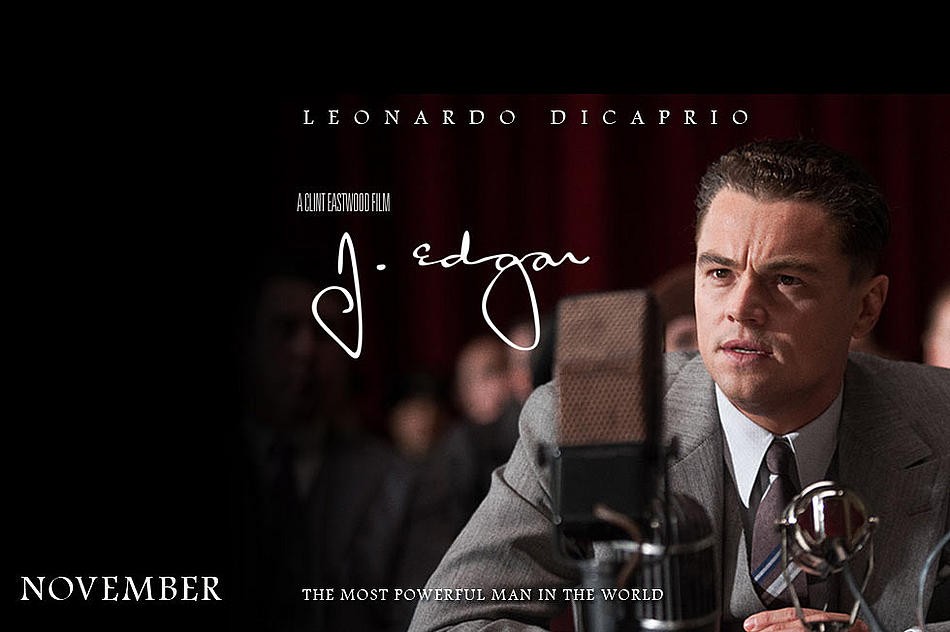
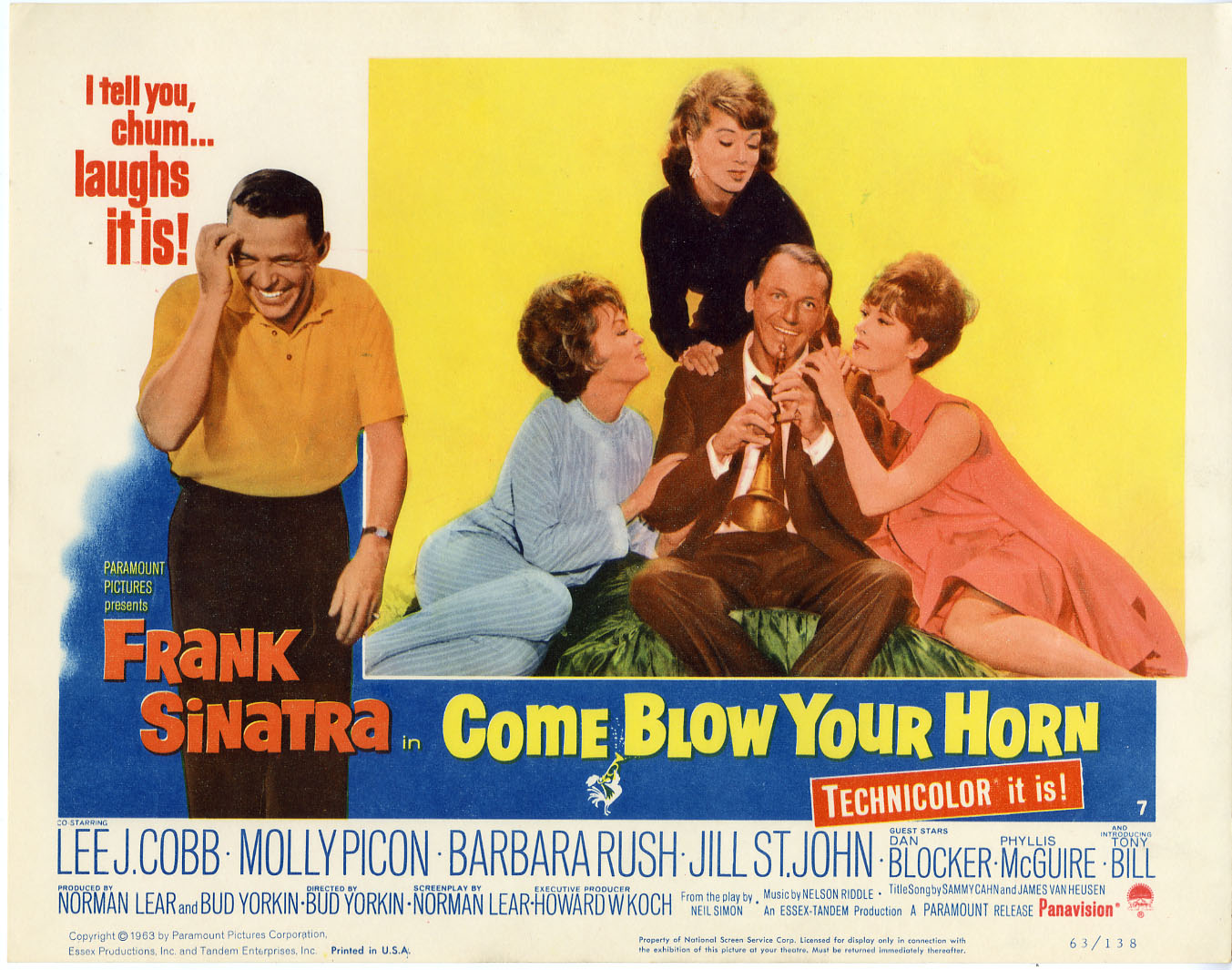
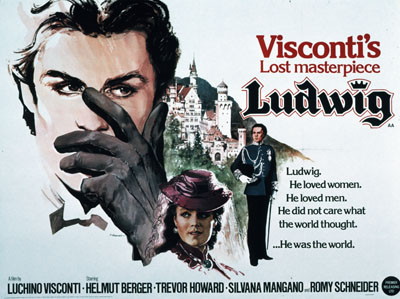




.jpg)


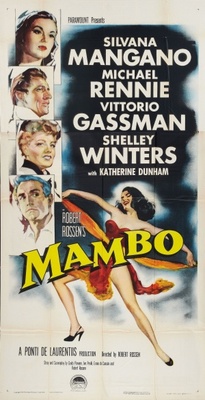
_1st_edition_cover.jpg)

_standard_one-sheet.jpg)

_poster.jpg)
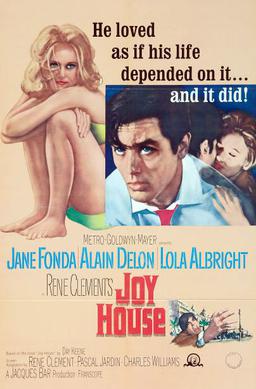
.jpg)


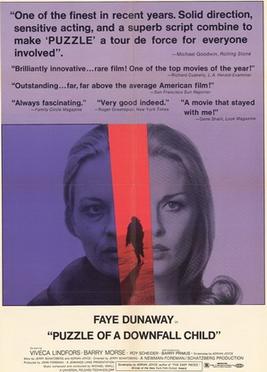
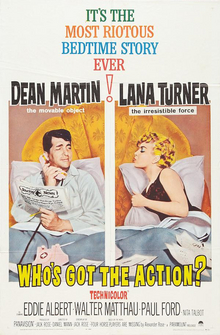




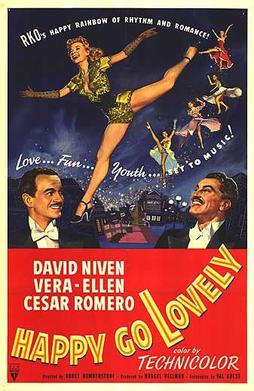
.jpg)
.JPG)

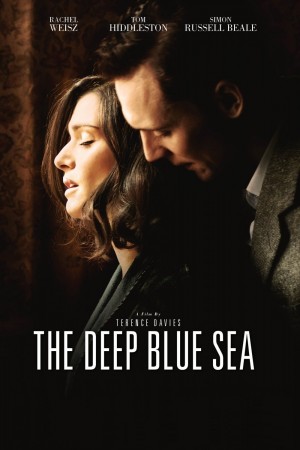



_01.jpg/220px-Poster_-_Last_Command,_The_(1928)_01.jpg)




.JPG)